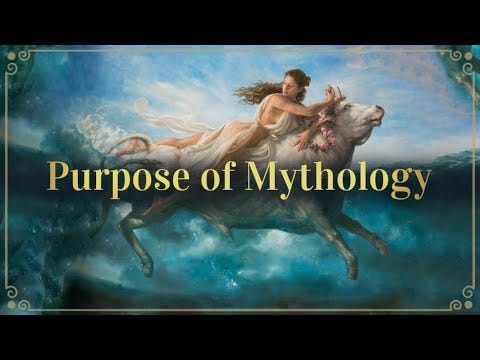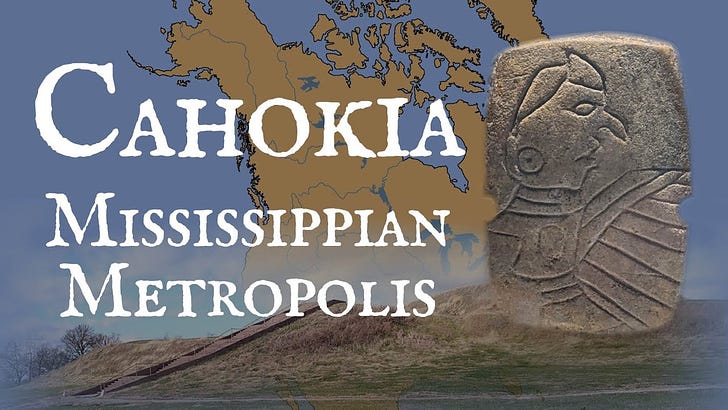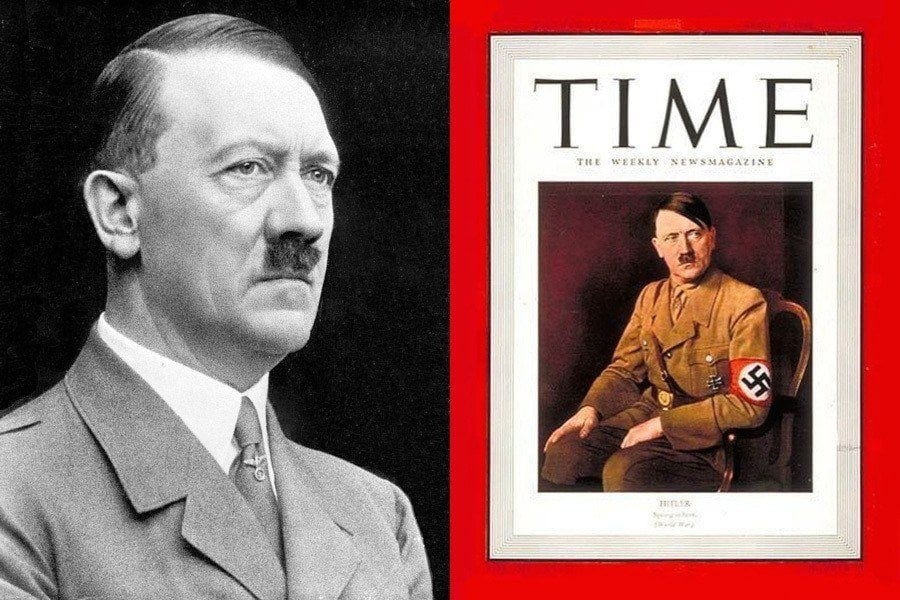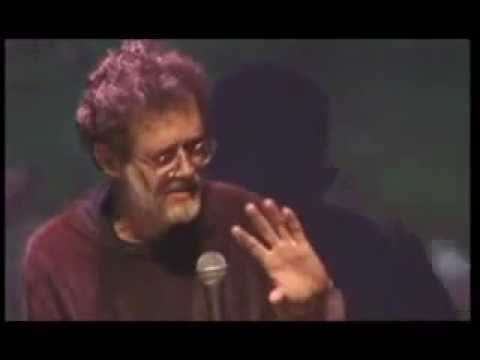Fascists and anarchists have been enemies for nearly a century... but that was not always the case. Before Italian fascisma was clearly the horror it became, many anarchists converted to fascism, or found common cause with its followers; and fascism drew inspiration from anarchists for some of its more interesting early experiments. Anarchists and fascists reacted against the same material conditions, and had many shared negative goals in the short term, though deeply conflicting positive goals.
-The Unquiet Dead: Anarchism, Fascism, and Mythology
Among those theorists whose ideas served as a catalyst for twentieth-century anarchism, Georges Sorel (1847–1922) remains the most controversial, primarily due to his own troubled political trajectory and that of his self-proclaimed followers, many of whom were drawn to fascism following Benito Mussolini’s rise of power in 1922, the year of Sorel’s death.
-Mark Antliff, Bad Anarchism: Aestheticized Mythmaking and the Legacy of Georges Sorel
Mussolini had an idea from the confusion of his heart
Then there were a thousand more waiting to play their part
The stage was set, the costumes worn
And another empire of destruction born
-Crass, Where Next, Columbus?
Hey Gang,
As you probably aware, Nevermore is very big on the idea of Mythos.
Specifically, we promote the idea that the whole Marxist wet dream of the all-absolving, means-justifying, capital-R, climax-of-history REVOLUTION is just kind of silly and misguided.
ANARCHIST VS. MARXIST MYTHOS (PART 1)
Hey Gang, In a recent piece, I explained a revelation that I recently had, which was partly inspired by someone called Sketchy the Clown. The revelation was this - The World-Story is Broken. In that piece, I explain that there is no such thing as a culture without a mythology, and liken Mythos to the hidden operating system of any given culture.
ANARCHIST VS. MARXIST MYTHOS (PART 2)
Hey Gang, Lately, I have been on a big kick about something that I call the World-Story. The idea is this - each belief system explains the world through some kind of narrative about why things are the why they are. In other words, each ideology comes with a Mythos. This is important because each belief system will contain certain assumptions about who or …
HISTORY AIN’T CLIMAXED YET, BRO!
Instead of promoting the idea of One Big Orgasm of History, we propose a strategy of cultural inversion (creating a counterculture by consciously rejecting the values of the dominant culture), exodus (exiting mainstream society), and ethnogenesis (turning a counterculture into a permanent culture).
This strategy is based upon a simple truth - the force of insurrection is social, not military. In other words, culture is our strong suit, and if we want to play to our strengths, we should avoid violence and seek harmony.
Because we are big on the idea of consciously creating a whole new culture from scratch, we are big on Mythos.
Simply put, there is no such thing as a culture without a mythology. The process of creating a culture and the process of creating a Mythos are one and the same.
If you’re interested in these ideas, I refer you to this essay:
THOSE WHO WALK AWAY FROM CAHOKIA (WHAT IS ETHNOGENESIS?)
Hey Gang! As you know, I’m a big believer that anarchist theory is in need of a big overhaul, and I’ve been doing my best to play my part. Lately, I’ve been wondering how many of my readers are actually familiar with post-left anarchist theory. I’m guessing that some of you probably think that post-left anarchism is a new thing, but it is absolutely not.
If you’re interested in the idea of ethnogenesis, which entered radical theory after Italian autonomists took the term from anthropology, I refer to you to this video:
Anyway, the more historically literate of you have probably been wondering if we know about the ideas of Georges Sorel, or about a certain chapter of anarchist history that most anarchists today would rather forget about.
The answer is yes. Although I have not read Sorel, I am familiar with the broad strokes of his life story and the influence that he had on anarchist theory.
I first learned about Sorel’s ideas in a very interesting audiobook called The Unquiet Dead: Anarchism, Fascism, and Mythology, which tells the story of how anarchist and fascist ideas commingled and hybridized during the tumultuous time between WWI and WWII.
Mussolini himself began his political career as a revolutionary socialist Leftist who espoused an ideology pretty darn close to anarcho-syndicalism.
Obviously, this isn’t something that anarchists today take pride in, but it’s true.
Anyway, it is because of this history that Sorel is generally left out of the anarchist canon, despite being one of the most influential anarchists of the twentieth century. It’s because his ideas ended up being taken up by Italian fascists.
Most anarchists today have never even heard of Sorel, let alone read him.
One exception would be the late David Graeber, who was probably kinder than most when he writes about Georges Sorel alongside the great French anthropologist Marcel Mauss in Fragments of an Anarchist Anthropology.
Explaining why Mauss identified as a revolutionary socialist rather than an anarchist, Graeber wrote:
[Mauss] identified anarchism mainly with the figure of Georges Sorel, an apparently quite personally distasteful French anarcho-syndicalist and anti-Semite, now mainly famous for his essay Reflections sur le Violence.
Sorel argued that since the masses were not fundamentally good or rational, it was foolish to make one’s primary appeal to them through reasoned arguments.
Politics is the art of inspiring others with great myths. For revolutionaries, he proposed the myth of an apocalyptic General Strike, a moment of total transformation. To maintain it, he added, one would need a revolutionary elite capable of keeping the myth alive by their willingness to engage in symbolic acts of violence—an elite which, like the Marxist vanguard party (often somewhat less symbolic in its violence), Mauss described as a kind of perpetual conspiracy, a modern version of the secret political men’s societies of the ancient world.
In other words, Mauss saw Sorel, and hence anarchism, as introducing an element of the irrational, of violence, and of vanguardism. It might seem a bit odd that among French revolutionaries of the time, it should have been the trade unionist emphasizing the power of myth, and the anthropologist objecting, but in the context of the ‘20s and ‘30s, with fascist stirrings everywhere, it’s understandable why a European radical-—especially a Jewish one-—might see all this as just a little creepy. Creepy enough to throw cold water even on the otherwise rather appealing image of the General Strike—which is after all about the least violent possible way to imagine an apocalyptic revolution. By the ‘40s, Mauss concluded his suspicions had proved altogether justified.
To the doctrine of the revolutionary vanguard, he wrote, Sorel added a notion originally culled from Mauss’ own uncle Durkheim [the Father of French sociology]: a doctrine of corporatism, of vertical structures glued together by techniques of social solidarity. This he said was a great influence on Lenin, by Lenin’s own admission. From there it was adopted by the Right.
By the end of his life, Sorel himself had become increasingly sympathetic with fascism; in this he followed the same trajectory as Mussolini (another youthful dabbler with anarcho-syndicalism) and who, Mauss believed, took these same Durkheimian/Sorelian/Leninist ideas to their ultimate conclusions.
Now, as you can see, Sorel was big on myth and believed that effective revolutionary strategy required “inspiring others with great myths”. If anyone wants to accuse me of believing something similar, I will have no choice but to plead guilty as charged. Nor will I have any defence if someone accuses me of believing that human beings are irrational. Does this mean that I’m failing to learn the lessons of history? I don’t think so, and I’ll tell you why.
For one thing, I definitely do not endorse Sorel’s idea of corporatism, which Mussolini seems to have enthusiastically embraced. Furthermore, I reject the idea that anarchist Mythos are best reinforced through symbolic acts of violence. That sounds like a Gladio-esque Strategy of Tension to me, and I agree with Mauss that that’s super-creepy!
Honestly, I think that’s all I’ve got for now. To be fair, I haven’t read Sorel, and the idea of promoting the Great Myth of the General Strike sounds pretty based to me!
Remember, we can’t really blame Italian fascism on Sorel, who died in 1922. Sorel’s ideas inspired Mussolini, but they also inspired Franz Fanon, the author of The Wretched of the Earth, which is still considered a classic today.
Also, to set the scene a bit, Adolf Hitler was Time magazine’s Man of the Year in 1938!
It seems somewhat absurd to hold Sorel responsible for Italian fascism, although some of his ideas did inspire fascists to mythologize their political aspirations. Does it follow, then, that mythologizing your political aspirations makes you a fascist? Of course not!
Was Handsome Lake a fascist? What about Subcommandante Marcos? How about Bini, the Wet’suwet’en prophet who founded the Prophet Dance movement? Or Wovoka, the Lakota visionary who led the Ghost Dance? How about Simon Kimbangu? Mohatma Gandhi? Malcolm X? Martin Luther King?
All these people mythologized their political aspirations in different ways, and none of them were anything even vaguely resembling a fascist. Fascism is a just an extreme form of industrial capitalist statism. If you’re not a statist, there is zero point worrying about whether people think you’re a fascist.
If a fascist mythologizes their political aspirations, you might get something like fascist Italy. If an anarchist mythologizes their political aspirations, the result will be something else entirely.
Conclusion: Let’s not be scared to talk about Mythos, and let’s not be afraid of studying Sorel’s ideas with the same dispassion that we would study Nietzche, Stirner, Mao, or Levi-Strauuss.
I don’t think that we should be any more ashamed to study Sorel than we should be to study Marx or Kaczynski.
Uncle Karl’s ideas led to over a hundred million deaths, and Uncle Ted was a serial killer. Politics is a dirty business.
Why Should Anyone Care about Karl Marx Today?
Hey folks! I’ve written a couple harsh critiques of Marxism lately, which you can find here: These pieces seem to have quite well-received. A Substacker named W.D. James, who is a philosopher professor and former Marxist, called it profound, and the legendary Tom Keefer, also a former Marxist, told me “you’re becoming an intellectual”. Not too often you …
PRIMIVITISM VS. PRIMALISM - WHICH IS MORE BASED?
Ted Kaczynski, the notorious ‘domestic terrorist’ and radical author (who died last month) also went into the Woods. After he was arrested and his work became widely known, he became, for a short time, the darling of anarcho-primitivists such as John Zerzan, and with good reason, as
So, with that out of the way, I present an essay by Nevermore’s resident philosophy professor, W.D. James.
In it, he reflects upon the legacy on the long-lost black sheep of the anarchist family, Georges Sorel.
This essay is meant to kick-start some discussion about anarchism, fascism, and mythology, as well as Sorel’s legacy.
for the wild,
Crow Qu’appelle
P.S. On a very tangentially-related note, I’d like to recommend Guillermo del Toro’s adaptation of Pinocchio, which is set in Mussolini-era Italy.
The film features innovative techniques of stop-motion animation, sure to delight cartoon lovers, plus del Toro’s a great storyteller. Hollywood’s not 100% Satanic yet!
Sorelian Myth: A Dangerous Idea
by W.D. James
There are such things as dangerous ideas. Essentially, these are ideas that contain at least some truth and seek to operate, as Friedrich Nietzsche put it, ‘beyond good and evil.’ They are never quite licit. The conception of political ‘myth’ formulated by Georges Sorel (1847-1922) is one such idea.
Myths touches on deep aspects of our humanity. Karen Armstrong, in A Short History of Myth (2005), denotes at least five things a mythology will typically include:
The experience of death;
Association with rituals;
A confrontation with “extremity,” forcing us beyond our actual experience;
Guidance on how we should act;
A connection to “another plane” represented by “the perennial philosophy.”
It is through participation with the divine world via the myth that humans learn to fulfill their potential. What might be the political implications of myth? Sorel’s account will reflect this traditional world of myth, but will draw it down into the realm of power and politics and instrumentalize it.
Sorel seems to have largely slipped below our intellectual radar. I find only one recent English language video regarding him on YouTube. His appearances in academic journals are few and far between. Recent republications of his work available on a large online book retailer include two small presses: one socialist-anarchist the other hard right reactionary.
Sorel kept evolving as a thinker. At different times, he was heavily influenced by the thought of Pierre-Joseph Proudhon (this influence was enduring), Karl Marx, Benedetto Croce, Friedrich Nietzsche, Henri Bergson, and William James. He was in turns a never very orthodox Marxist, an anarcho-syndicalist, an integral nationalist, and a supporter of Lenin and the Bolshevik revolution. After his death, an Italian Fascist journal edited by Benito Mussolini (who had himself been a socialist and a syndicalist earlier in life) proclaimed fascism as the ultimate fulfillment of his ideas.
To make sure we don’t pigeonhole Sorel, it should also be noted that his thought was at the same moment being taken up and utilized by the Italian Communist Antonio Gramsci, who would later die in a Fascist prison.
A satisfactory explication of his ideas (which I don’t believe has been written yet), would take at least a volume. Here my aim is much more limited, recognizing there is much else to be considered and there is a lot that pretty much anyone could find problematic in his thought which I will mostly pass over.
I will focus in on his conception of ‘myth’ and the role it plays in his theory of revolution. However, never one to be stingy, I will preface this with a look at another dangerous idea, that of Nietzsche’s ‘master morality’, and examine how the former both applies and transforms the latter, so as to provide some larger context for the Sorelian idea.
Moral Genealogy
In On the Genealogy of Morals (1887), Nietzsche seeks to give us an historical account of moral terms like ‘good’ and ‘evil’ without reference to any transcendent moral or metaphysical reality. On his view, historical moralities will be seen as expressions of will. Their impact, then, will be an expression of power: the ability to impact the values that will be accepted and become efficacious in the world.
In a sense, this completely undercuts any actual ethical content of morality. Or, it seems like it should. Nietzsche still holds to values which he clearly prefers and believes have some veracity. His new quasi-ethical principle will be ‘life’: moralities which are expressions of will which affirm ‘life’ will be seen as better, and more importantly, anti-decadent (so, the ultimate standard may be aesthetic). Moralities which are just as much expressions of will but which are anti-‘life’ will be exposed as hypocritical and decadent.
Nietzsche boasts:
“I am an opponent of our modern, effeminate ways, our ‘delicacy of feeling….’”
This strategy is reductive in that the ‘higher’ (morality) is explained in terms of the ‘lower’ (will and power), so this is a typically modern move. That this effectively represents a deconstruction of morality, and in exposing the operations of power relations as the ‘real story,’ it is also an expression of post-modernity; what has been termed a ‘hermeneutics of suspicion.’
On Nietzsche’s unpacking of things, the history of morality is one of degeneration. All civilizations are dominated by an elite: either a “knightly” aristocracy or a “priestly” aristocracy. The historical trend has been for knightly aristocracies, with their “master” morality, to be replaced by priestly aristocracies with their “slave” moralities. The society of barbaric Germans is his main model for a master morality, but the ethos of any warrior society should fit in as well. Amongst priestly aristocracies he references the Brahmin caste in India, the Jews, and most specifically Christianity and the Church. The latter religion is his primary target as being most relevant to nineteenth century bourgeois European society.
What characterizes master moralities is that their values express the ‘Yes’ to ‘life’ which informs the moral codes of warrior aristocracies. Their values are expressions of their robustness, strength, and will to dominate. A knightly aristocracy develops an ethos in which the following equivalences prevail: good=aristocratic=beautiful=happy=blessed by the gods. For Nietzsche, this represents a free-spiritedness which is not afraid of willing and expressing itself. It is authentic.
Priestly aristocracies, on the other hand, wish to wield power but lack the overt force of the knightly aristocracy. Hence, they fight surreptitiously and in bad faith. Their motivation is that of resentment. Their method is to perform a “transvaluation of values” on the master morality of the warriors. The resulting slave morality turns all those values on their heads. Strong, powerful, violent, willful, glorious, etc… all come to be seen as evil, not good. One can think here of the Beatitudes extolled by Jesus in the New Testament: blessed are the poor in spirit, blessed are the persecuted, the meek shall inherit the earth. Those are not the values of a military aristocracy, but the opposite. On Nietzsche’s reading, this is no less an expression of will than was the counter ethos, but is an expression of the will of the weak but clever. It is a ‘No’ to life as joy in expression of its own power. As such, this morality will also be anti-life: an ethic of restraint, care, chastity, compassion…all very bad things for Nietzsche.
“The slave’s revolt in morality begins when resentment itself becomes creative and gives birth to values…”.
By exposing the underlying resentment behind the dominant slave morality, Nietzsche hopes to open up the possibilities of a new heroic ethos. This will not be of a warrior aristocracy in the old sense, but of a new spiritual aristocracy of those, like Nietzsche, eager to will new values.
Myth and Violence
Sorel largely accepted and built upon the Marxist analysis of history as the history of class struggle. However, he did not accept Marxism as an exact science. He did not think the future was determined. Socialism was not inevitable.
Further, he thought the motivation to revolutionary activity depended on ultimately non-rational factors.
As James Burnham explains:
“In contradistinction to the allegedly ‘scientific socialism’ of the official parties, to their elaborate programs of ‘immediate demands’ and desired reforms, to their lengthy treatises on how socialism will be brought about and what it will be like and how it will work, Sorel insists that the entire revolutionary program must be expressed integrally as a single catastrophic myth: the myth, he maintains, of the ‘general strike’.”
Sorel’s most prominent modern translator and interpreter, John L. Stanley, roots this vitalist element not only in the thought of Nietzsche but ultimately in that of one of the early fathers of modern anarchism, Proudhon.
He quotes Proudhon at length:
“Man first dreamed of glory and immortality as he stood over the body of an enemy he had slain. Our philanthropic souls are horrified by blood that is spilled so freely and by fratricidal carnage. I am afraid this squeamishness may indicate that our virtue is failing in strength. What is so terrible in supporting a great cause in heroic combat, at the risk of killing or being killed […]? Death is the crown of life. How could man […] have a more noble end?”
According to Stanley’s interpretation, Proudhon is saying that it is only through heroic action that a good and just society can be brought about.
It was in Reflections on Violence (1908) that Sorel developed his conception of myth.
There he writes:
“[M]en who participate in great social movements represent their immediate action in the form of images of battles assuring the triumph of their cause. I proposed calling these constructions myths… the syndicalist general strike and Marx’s catastrophic revolution are myths.”
He is careful to distinguish a myth, in this sense, from either a theory or a utopia. Both of the latter are essentially intellectual matters of words. This alone is not sufficient to steel people for revolutionary conflict. Consequently, according to Sorel, those who are primarily motivated by these intellectual constructs will tend towards reform and compromise. These intellectual constructions are the province of political parties and professional politicians, neither of whom Sorel respected or thought capable of revolutionary action: they would tend to look at problems as calling for administrative and bureaucratic, ‘rational,’ solutions. Revolutions could only come from the masses.
Sorel observed that:
“Current revolutionary myths are almost pure; they permit the understanding of the activity, sentiments and ideas of popular masses who are preparing to enter into a decisive struggle; they are not descriptions of things but expressions of the will.”
A myth is more a matter of images than of language. Sorel argues that myths arise from instinctual sources in our individual and collective psyches. He is deeply skeptical that a science of socialism can tell us anything about the future of society: the future is not predictable. Hence, no scientific theory can guide the revolutionary masses. What is needed is a myth which both arises from their struggle with the foes they are confronted with and directs them to future oriented action. Myths embody “the mass of sentiments which correspond to the various manifestations of war entered into by socialism against modern society.”
So, it will not be Marxist dialectical materialism which throws the proletariat into violent struggle but the myth of a general strike which will concretely move them to militant action because it both expresses and stimulates the sum total of their sentiments and their will toward confrontation.
For Sorel, the instrumental function of myth is then to move the masses towards a violent confrontation with their society, its structures, and elites. However, violence has a very specific meaning for him. He contrasts it with ‘power’ where that term refers to the force used by dominant elites to exercise their will on the masses and ‘violence’ is the force exerted by the masses to contest and ultimately destroy the ‘power’ of the elites.
In this special sense, violence, or more specifically, the preparation for the exercise of violence in the hearts of the revolutionaries, is morally salvific. With Nietzsche in mind, he says that the proletariat cannot achieve revolution if it remains caught up in a “morality of the weak.” They must, collectively, adopt a morality of the strong.
“It is to violence that socialism owes the high moral values by which it brings salvation to the modern world.”
We can now see that Sorel has much the same project as Nietzsche. He wishes to morally revitalize the modern world through an act of will which constitutes new heroic values. However, he has changed the agent of this accomplishment. The revolutionary proletariat has been substituted for the spiritual aristocracy. The role of myth in this scheme is to provide the inspiring image of the violent encounter which will call the revolutionary to violence and sacrifice to boldly create a desirable future.
This analysis also helps to explain the religious, spiritual, and mythic dimensions that form around revolutionary movements. There really is a participation in the mythic going on. Revolutionary movements encounter death in the form of that movement’s martyrs and in the desire for violent confrontation with the established order. They develop their own rituals of activism. They move their participants beyond the realm of their current experience to the projected experience of the crucial confrontation and guide their action in that direction. Further, they take on cosmic significance: the final triumph of goodness and justice.
Moral Risk
If we believe there is something real and eternal to moral values, we cannot help but see this instrumentalization of morality, in its Nietzschean or Sorelian forms, as problematic. To a moral realist, someone who believes moral principles and values have objective existence, one places justice (or moral rightness) ahead of success. If one loses while maintaining their fidelity to these principles, at least it will have been a ‘noble cause’ one fought for. Better that than to sacrifice justice to gain an ignoble victory. The strict vitalist risks losing their bearings.
And yet. There is something to be said for victory. There is something true in these moral theories of Nietzsche and Sorel. Whether it is through the ‘will-to-power’ of the former or the ‘violence’ of the latter, existential conflict does produce and develop certain genuine virtues, like courage, the willingness to sacrifice oneself for a larger cause, in addition to others. Further, if one feels that all the moral energy has largely ebbed out of one’s society, the restoration of these virtues through conflict may well be morally and culturally salutary.
However, that cannot be the whole story, as both these thinkers more or less seem to think it is. Might actually does not make right. Or more specifically, even if the exercise of power and violence in a cause can elicit certain heroic virtues, that does not make the cause itself just or right. We can imagine people fighting for the most immoral cause in the world: they may well develop a form of courage and accept sacrifice. Those are still good things (though I think their goodness is seriously diminished by misemployment). Yet, no matter how great the virtues developed fighting for such a cause, it remains evil. Will, power, violence, heroism, etc… do not, in fact, create value.
So, here precisely is where the danger lies in these sorts of ideas. We may forget that people can act admirably on the behalf of bad causes. That is the negative side of the dilemma. If this were the whole story, we would do well to never venture forth on risky business.
The other side of the story is that a good cause which is never fought for is impotent. Winning is not bad. That would indeed be a very transvaluative idea to hold.
A further moral complication: even a good cause is never a perfect cause. They are all flawed. Further, even to the extent that a cause is good, if it requires the use of violence on a massive scale, the innocent will end up suffering as well.
In the complex world of our social relations to one another, I would suggest we neither need to assume the false notion that struggle itself makes the cause good, nor on the other hand should we spurn the notion that because the fight for the cause will be morally gray, we should abstain from the fight. That would be cowardice.
Tomorrow’s Myth
To the extent that Sorel’s conception of political myth is true, we would like to know what is the myth of the current struggle we are engaged in? Sorel is clear this is not something you get to just ‘make up.’ The myth emerges from the sentiments and aspirations of the revolutionary group. They have to authentically emerge from the genuine feelings and strivings of that group. Yet, they still have to be named, formed, and refined: he is less clear on how this does or should happen. Further, it identifies who their enemy is that is to be struck. Then, it must picture what would be the complete victory of the revolutionary group over their enemy. That, and not theories, according to Sorel, is what can move a group to revolutionary action.
If we look at the actual political terrain we inhabit, it seems the revolutionary group would include all ‘freedom-loving people.’ That is, so far, less defined than ‘the proletariat’ or ‘the nation’ were in earlier struggles. The sentiments and aspirations of this group would include, of course, freedom. I would suggest also implicit is a demand for dignity and fair treatment. There is also, if we are honest, a fare degree of hatred for those we perceive as our enemy. What makes them our enemy has nothing to do with any demographic group they do or do not belong to. Further, I don’t believe it is even their elite status. It is the dehumanizing actions that reflect their desire to tyrannize over us.
It is not for me to try to flesh out an entire mythology or Sorelian mythological image. However, I will venture to outline one concrete image that comes to mind. Given the global extent and multiplicitious nature of our contemporary tyranny, I would suggest a hydra straddling the orb of our globe. Of course, its many heads are well into the process of being severed by the sword wielded by a tyrannicide. If the motto sic semper tyrannis could be incorporated somehow, that would make me happy. What concrete action that image would be referencing, which would be the myth proper, yet eludes me.
SIC SEMPER TYRANNIS!
Another's hope, another's game
Another's loss, another's gain
Another's lies, another's truth
Another's doubt, another's proof
Another's left, another's right
Another's peace, another's fight
Another's name, another's aim
Another's fall, another's fame
Another's pride, another's shame
Another's love, another's pain
Another's hope, another's game
Another's loss, another's gain
Another's lies, another's truth
Another's doubt, another's proof
Another's left, another's right
Another's peace, another's fight
Marx had an idea from the confusion of his head
Then there were a thousand more waiting to be led
The books are sold, the quotes are bought
You learn them well and then you're caught
Anothers left, anothers right
Anothers peace, anothers fight
Mussolini had an idea from the confusion of his heart
Then there were a thousand more waiting to play their part
The stage was set, the costumes worn
And anothers empire of destruction born
Anothers name, anothers aim
Anothers fall, anothers fameJung had an idea from the confusion of his dream
Then there were a thousand more waiting to be seen
You're not yourself the theory says
But I can help, your complex pays
Anothers hope, anothers game
Anothers loss, anothers gain
Sartre had an idea from the confusion of his brain
Then there were a thousand more indulging in his pain
Revelling in isolation and existential choice;
Can you truly be alone when you use anothers voice?
Anothers lies, anothers truth
Anothers doubt, anothers proof
The idea born in someones mind
Is nurtured by a thousand blind
Anonymous beings, vacuous souls
Do you fear the confusion, your lack of control?
You lift your arm to write a name
So caught up in the identity game
Who do you see? Who do you watch?
Who's your leader? Which is your flock?
Who do you watch? Who do you watch?
Who do you watch? Who do you watch?
Who do you watch? Who do you watch?
Who do you watch? Who do you watch?
Who's your leader? Which is your flock?
Who's your leader? Which is your flock?
Who's your leader? Which is your flock?
Who's your leader? Which is your flock?Einstein had an idea from the confusion of his knowledge
Then there were a thousand more turning to advantage
They realised that their god was dead
So they reclaimed power through the bomb instead
Anothers code, anothers brain
They'll shower us all in deadly rain
Jesus had an idea from the confusion of his soul
Then there were a thousand more waiting to take control
The guilt is sold, forgiveness bought
The cross is there as your reward
Anothers love, anothers pain
Anothers pride, anothers shame
Do you watch at a distance from the side you have chosen?
Whose answers serve you best? Who'll save you from confusion?
Who will leave you an exit and a comfortable cover?
Who will take you oh so near their edge, but never drop you over?
Who do you watch? Who do you watch?
Who do you watch? Who do you watch?
Who do you watch? Who do you watch?
Who do you watch? Who do you watch?
Who do you watch? Who do you watch?
Who do you watch? Who do you watch?
Who do you watch? Who do you watch?
Who do you watch? Who do you watch?











With all due respect for your intelligence and drive, Crow, when are you gonna get beyond these recent Substacks with their fiery judgments about the dead past and return to the GIGANTIC LIVING CHALLENGES of the present? Speaking of which, lemme know if you want to publish the poem "Let's Burn the Flags of All Nations" I sent you a ways back or if you want an abridged version or if instead you'd like to see another poem or indeed nothing at all? And when you return to Canada, gimme an address I can send you two of my books. I have sent books to people in Mexico and they disappeared without a trace -- hopefully at least in the hands of some member of a cartel during his all too brief R & R away from slaughtering the innocents...Michael